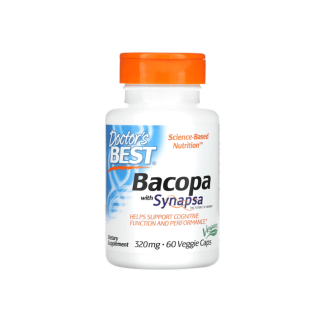Women’s health needs can be quite distinct from men’s due to differences in physiology, lifestyle, and the stages of life they go through such as pregnancy and menopause. The right dietary supplements can help address these specific needs and contribute to overall wellness. This guide will explore the role and benefits of various supplements for women’s health.
Understanding Women’s Health Needs
Women have particular nutritional needs and health concerns. Factors such as hormonal fluctuations, menstrual health, pregnancy, menopause, and bone health all influence women’s nutritional requirements. Proper dietary supplements can provide targeted support for these unique needs.
Supplements for Women
Here are some commonly recommended supplements for women:
Multivitamins
Multivitamins provide a comprehensive range of essential vitamins and minerals to support overall health and wellness. They can help bridge any nutritional gaps in your diet.
Iron
Iron is an essential mineral that supports red blood cell production and oxygen transport. Women, especially those with heavy periods, are at risk of iron deficiency, making supplementation beneficial.
Calcium
Calcium is crucial for maintaining bone health. Women are at a higher risk of osteoporosis, especially after menopause, so adequate calcium intake is vital.
Vitamin D
Vitamin D helps the body absorb calcium and is necessary for bone health. It also supports immune function and mental health.
Omega-3 Fatty Acids
Omega-3 fatty acids support heart health, brain function, and inflammation management. They are found in fish oil supplements and are crucial for overall health.
Folic Acid
Folic acid is essential for women of childbearing age as it can help prevent neural tube defects in the baby during early pregnancy.
Probiotics
Probiotics support digestive health, boost the immune system, and may help manage weight. These beneficial bacteria can also promote skin health and mental wellbeing.
Magnesium
Magnesium is a key mineral that supports a variety of bodily functions, including muscle and nerve function, blood sugar regulation, and blood pressure management. It also plays a role in sleep quality and mood regulation, making it particularly useful for women experiencing premenstrual syndrome (PMS) or menopause symptoms.
Benefits and Potential Risks
Supplements can offer numerous health benefits for women, including supporting bone health, balancing hormones, supporting menstrual health, and promoting overall wellbeing. However, they should not be seen as a replacement for a healthy diet and lifestyle.
It’s also important to note that supplements can come with potential risks. Always consult with a healthcare provider before starting a new supplement regimen, especially if you have any health conditions or are taking other medications. Some supplements can interact with medications, and some are not recommended for people with certain health conditions.
FAQs
1. Can I take all these supplements together?
Many of these supplements can be taken together without issue. However, it’s best to consult with a healthcare provider to ensure that they won’t interact with each other or with any medications you’re taking.
2. Do I need to take these supplements if I have a balanced diet?
Even with a balanced diet, you might not be getting all the nutrients you need, due to factors like soil depletion and reduced nutrient content in modern foods. Supplements can help to fill in these gaps.
3. Are these supplements safe?
Most of these supplements are generally safe for healthy individuals when taken as directed. However, they can cause side effects in some people and can interact with certain medications. Always consult with a healthcare provider before starting any new supplement regimen.
4. Can these supplements improve my physical performance?
Some supplements, such as iron and magnesium, can support physical performance and recovery. However, supplements alone won’t make a drastic difference in physical performance. A balanced diet, regular exercise, adequate rest, and proper hydration are crucial for improving physical performance.
5. Do these supplements have any side effects?
Like all supplements, the ones listed here can potentially cause side effects. Common side effects may include digestive upset, nausea, and headaches. If you experience any adverse effects, discontinue use and consult with a healthcare provider.
Final Thoughts
Women have unique health needs, and dietary supplements can provide targeted support. However, they should not replace a balanced diet and a healthy lifestyle. Before starting any new supplement regimen, always consult with a healthcare provider to ensure it’s suitable for your needs and to avoid potential interactions and side effects.
 EU-countries,
EU-countries,  UK and
UK and  Norway
Norway


 English
English

